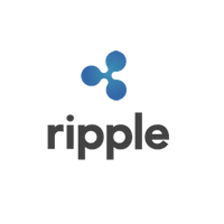Decentralized maximalism and blockchain purists - the Ripple run and debate
Over the last week, we have seen yet another cryptocurrency and blockchain company crush the market and make one of the most noteworthy moves in 2017. That token was Ripple. The recent events have really polarized the blockchain market. Let’s address the underlying factors causing the divide and what it means to be in and out of the Ripple move.

As we reviewed in a recent article, one of the underlying philosophies driving forward the blockchain revolution is decentralization. That is, for many blockchain protocols (started by Bitcoin) should be:
- Not owned by anyone - rather owned by the ‘token holders’
- Certainly not controlled by a company
What we have seen the emergence and in the case of Ripple, companies that are using tokens that are not linked directly to the companies ownership rather, issued and traded upon the companies ability to uses them as a utility. In essence, they will hold value but not in the true sense of what decentralized blockchain technologies usually do.
Given this contrast, we have seen chatter on Ripple rise.
It is clear to see that the tighter blockchain community put on a ‘brave face’ and congratulate Ripple on its success to 2nd in the global market ranks, however on the other side, feel slighted and let down that the community is not staying true to the maximalist values that a ‘true’ blockchain should be independent, decentralized and community controlled.
As for the mainstream media, it has been very interesting to see how much positive spin has been behind Ripple and its functionally. It is clear to see leavers of power being pulled as this company has huge backing by market leading VC firms with close connections in several other major markets and companies. The disparity of positive to negative coverage is clear.
The truth of the matter is that centralized or decentralized in the case of Ripple vs any other token that is trying to achieve the same or close to similar functionality, is that this is a COMPETITION! The service that will WIN, will be the one that that can meet the needs and wants of its consumer base.
In the case of the existing banking industry perhaps a company, such as Ripple, was required in order to transverse the complex and political regulatory environment. In the specific case of replacing a system such as SWIFT the Ripple token and protocol was the best solution and this is why Ripple has had such a prolific rise and win.
Does this mean all blockchains are likely to fall into line and follow this trend?
This is a two-part answer.
Firstly not all legacy technologies are so well guarded and protected like the banking sector is. In fact, most blockchain technologies will find it relatively easy to come in and provide a better offering from the outset than current systems.
Secondly, if you are a purist and believe in the decentralized movement and premise, moving one antiquated system to another centralized controlled token will only be a short-term fix and fad. The wider game and what the Ripple team should be asking themselves is “how long will it take for the average consumer and mass market to move away from banks as a service and starts becoming their own bank". Rather than waiting for a central authority to allow you to move money, people can simply move if fast, cheap and security themselves. The question is not "if coins such as bitcoin, or litecoin will offer the competitive solution?". Rather it will be when!